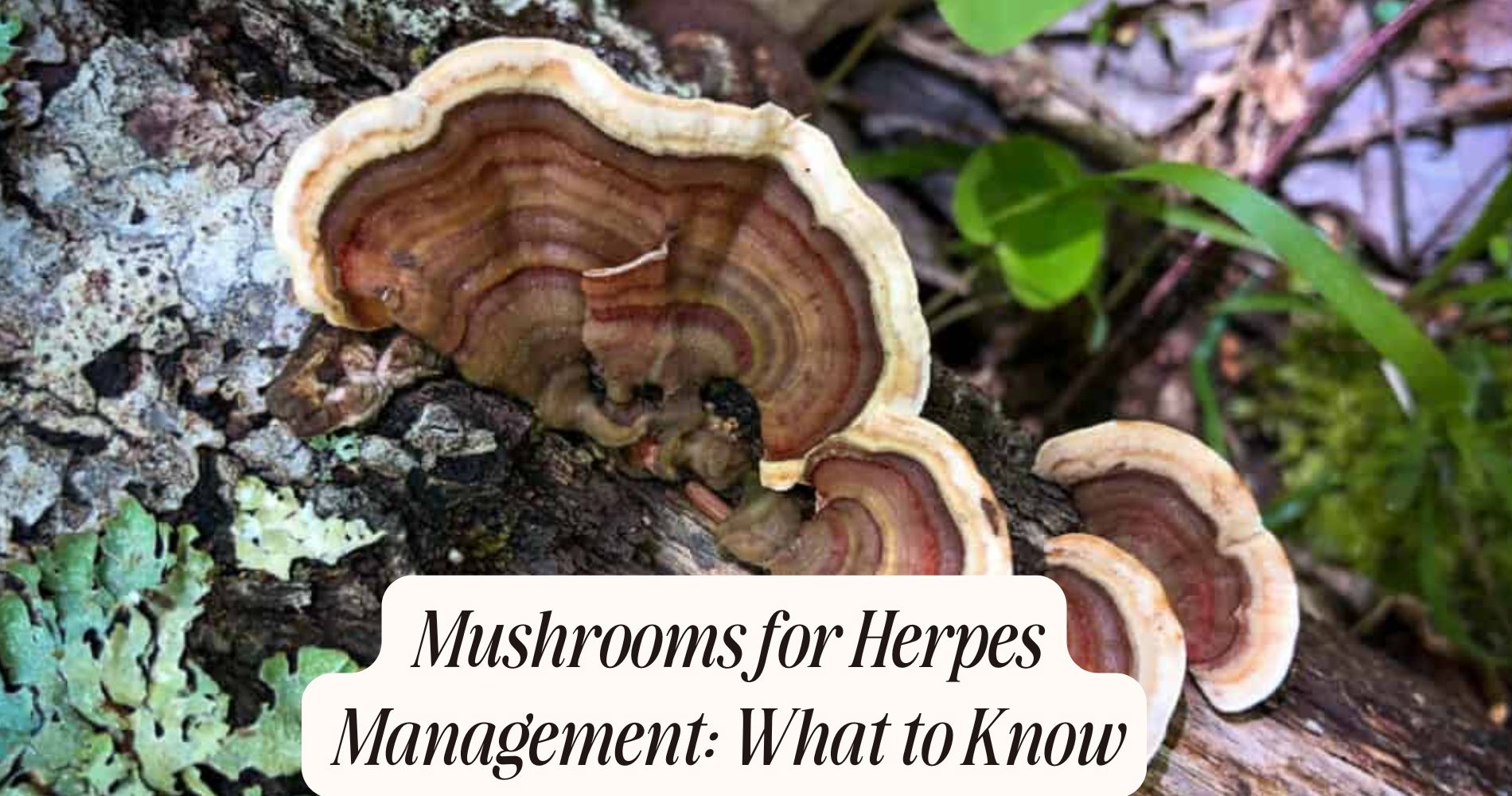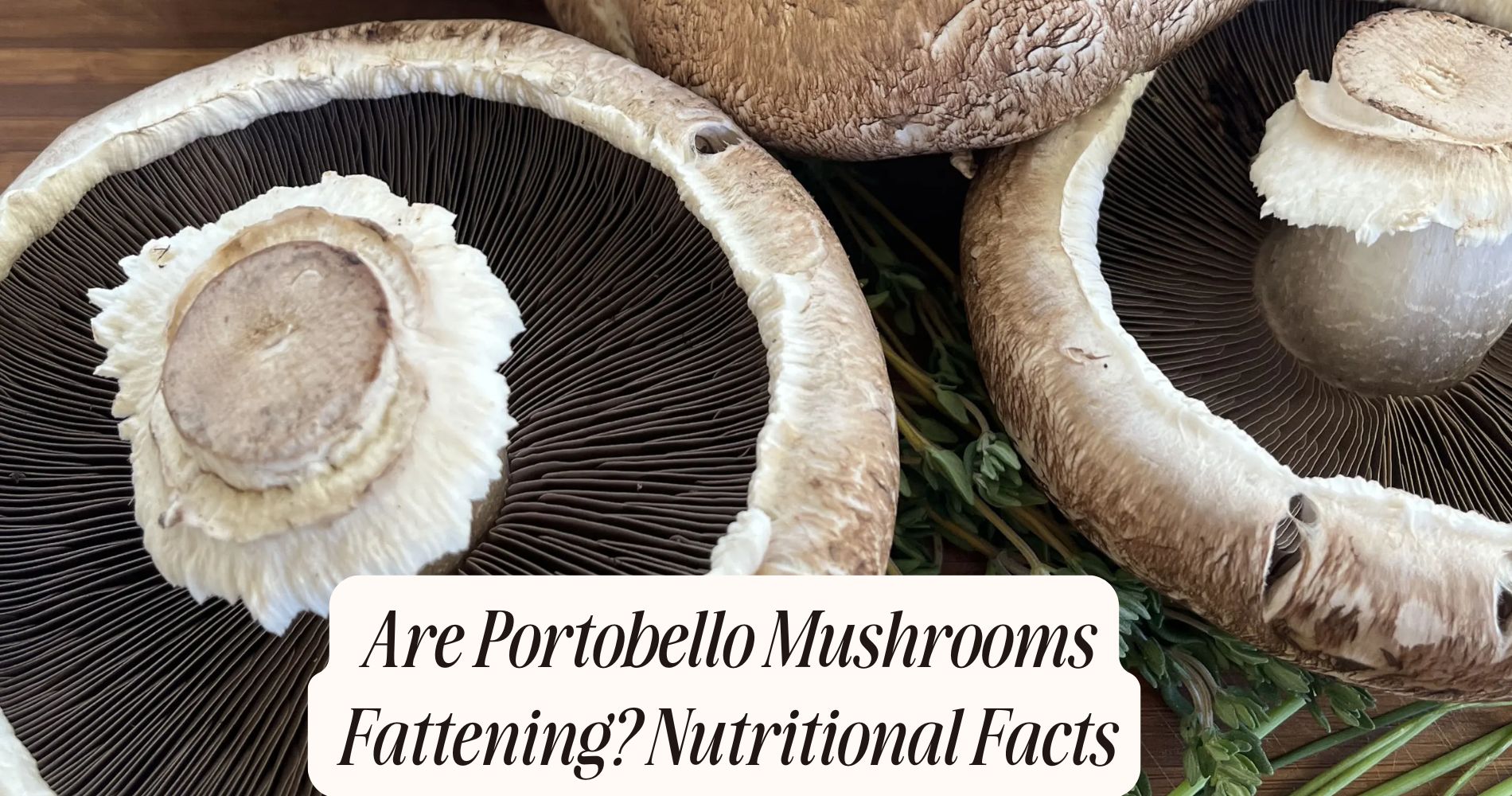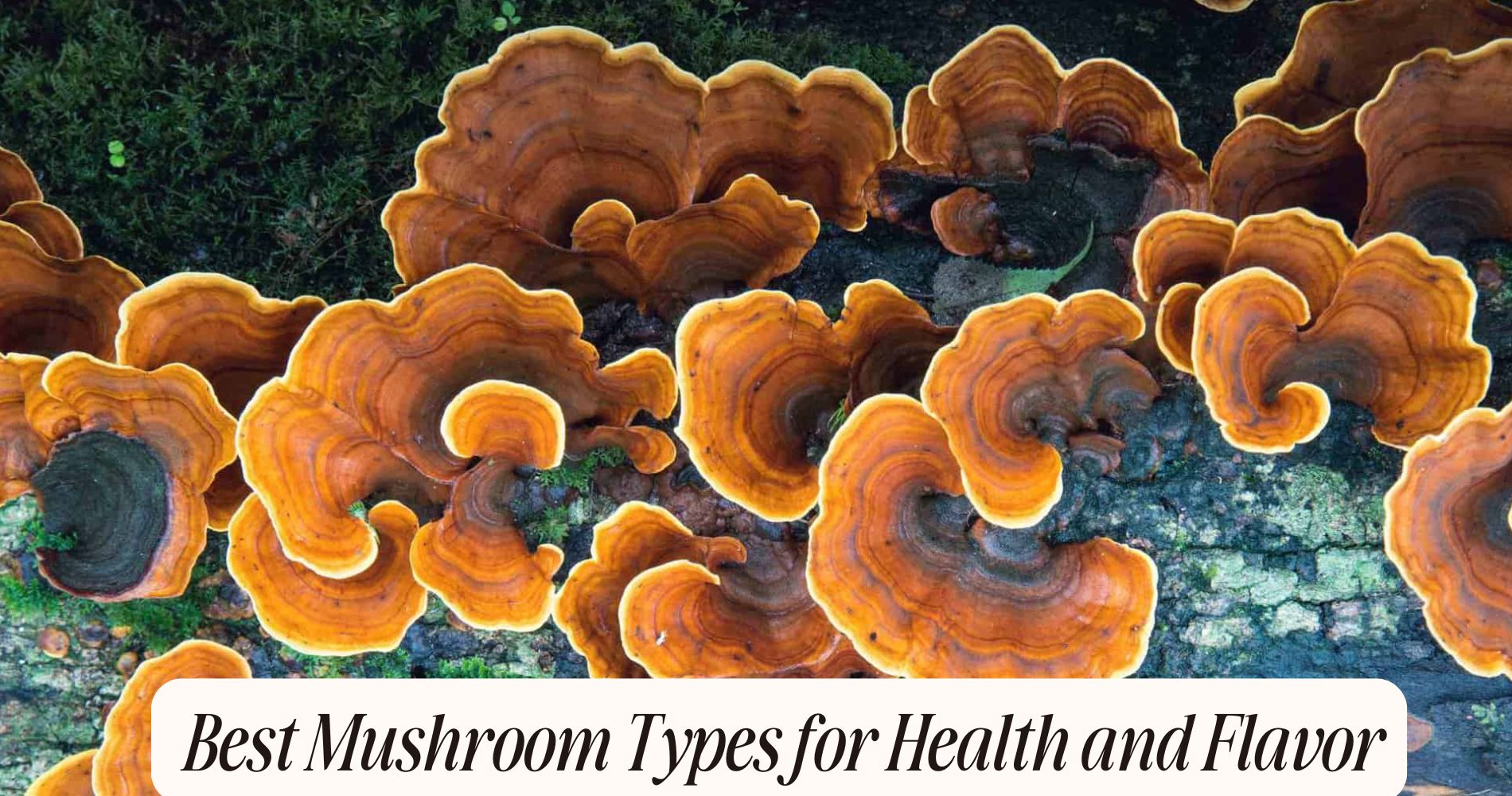
Mushrooms for Herpes Management: What to Know
Mushrooms for herpes management offer a natural way to support immune health and reduce outbreaks. Varieties like reishi, shiitake, and maitake are rich in compounds that enhance immune function and may inhibit viral replication. Research suggests these mushrooms can help decrease the frequency and severity of herpes symptoms. Adding them to your diet through soups, stir-fries, or supplements provides essential nutrients like B vitamins and antioxidants, which are vital for immune support. Always consult a healthcare professional before making dietary changes. Explore more to discover how these mushrooms can aid in managing herpes effectively!
Understanding Herpes
Understanding herpes involves recognizing it as a common viral infection caused primarily by two types of the herpes simplex virus (HSV-1 and HSV-2). You might be surprised to learn that HSV-1 typically causes oral herpes, while HSV-2 is more often linked to genital herpes. Both types can, however, affect any area of the body.
Herpes transmission occurs mainly through direct skin-to-skin contact with an infected person, especially during active outbreaks when sores are present. You can also contract the virus even when symptoms aren't visible, which makes awareness essential.
While many people carry the virus, not everyone will show herpes symptoms. When symptoms do appear, they often include painful blisters, itching, and flu-like signs.
It's important to remember that the virus remains dormant in your body after the initial infection and can reactivate due to various triggers such as stress or illness.
Understanding how herpes spreads and recognizing its symptoms can help you manage the condition more effectively. With proper knowledge, you can take steps to reduce transmission risks and seek appropriate treatment to minimize outbreaks and their impact on your life.
The Role of Mushrooms
Mushrooms, with their rich array of bioactive compounds, may play a supportive role in managing herpes outbreaks. Various mushroom varieties, such as reishi, shiitake, and maitake, are known for their health benefits, including immune system support and antiviral properties.
Reishi mushrooms, for instance, contain triterpenes, which have been shown to enhance immune function and may help your body combat viral infections. Shiitake mushrooms are rich in polysaccharides, like lentinans, that can boost your immune response. Maitake mushrooms also contribute to immune health and have been studied for their potential to inhibit viral replication.

Incorporating these mushrooms into your diet could provide you with essential nutrients that support overall wellness. You can enjoy them in various forms, from fresh to powdered supplements, making it easy to include them in your meals or smoothies.
While mushrooms alone won't cure herpes, their health benefits may help strengthen your immune system and reduce the frequency or severity of outbreaks.
Always consult a healthcare professional before making significant changes to your diet or treatment plan, especially if you're managing herpes.
Key Nutrients in Mushrooms
The unique composition of mushrooms includes several key nutrients that contribute to their health benefits.
You'll find that different mushroom varieties offer various nutrient benefits, which can be particularly useful for managing herpes.
For instance, mushrooms are rich in vitamins, such as B vitamins that support immune function and energy production.
Vitamin D, found in some varieties like shiitake, plays an essential role in immune health and can help your body fend off infections.
Additionally, mushrooms contain essential minerals like selenium and zinc, which are significant for maintaining a robust immune system.
Mushrooms are also a source of antioxidants, such as ergothioneine and glutathione, which combat oxidative stress and inflammation.
This antioxidant activity is fundamental for overall health and may help reduce the severity of herpes outbreaks.
Finally, the polysaccharides in mushrooms, particularly beta-glucans, enhance immune responses.
Types of Beneficial Mushrooms
When exploring mushrooms for herpes management, you'll find several medicinal varieties worth considering.
Each type contains unique active compounds that can boost your immune system and help manage symptoms.
Understanding these mushrooms and their benefits can guide you in making informed choices.
Medicinal Mushroom Varieties
What types of medicinal mushrooms can support herpes management? You'll want to evaluate several mushroom varieties known for their medicinal benefits.
Reishi mushrooms, for instance, are celebrated for their immune-boosting properties, which can be particularly helpful in managing herpes outbreaks.
Shiitake mushrooms are another excellent option; they contain polysaccharides that may enhance your body's immune response.
You might also explore Maitake mushrooms, known for their ability to support overall health and potentially combat viral infections.

Cordyceps mushrooms are gaining attention for their energy-boosting qualities and may also play a role in immune function.
Lastly, Turkey Tail mushrooms are packed with antioxidants and may offer additional support for your immune system.
These mushroom varieties can be easily incorporated into your diet through supplements or culinary dishes.
While research is ongoing, many people find that including these mushrooms in their routine contributes positively to their herpes management strategy.
Always consult with a healthcare professional before starting any new supplement, but these medicinal mushrooms could be a valuable addition to your wellness plan.
Active Compounds Benefits
Various active compounds found in medicinal mushrooms contribute considerably to their health benefits, particularly in herpes management. These compounds, like polysaccharides, triterpenes, and beta-glucans, play an essential role in boosting your immune system and reducing inflammation.
For instance, Reishi mushrooms contain triterpenes that may help modulate immune responses, potentially lowering the frequency and severity of herpes outbreaks.
Similarly, Shiitake mushrooms are rich in polysaccharides, which have been shown to enhance immune function and may help your body fight off viral infections more effectively.
Cordyceps, another beneficial mushroom, possesses bioactive compounds that can improve your overall energy and stamina, supporting your body's natural defenses.
Lion's Mane mushrooms have neuroprotective properties and may aid in stress reduction, which is critical since stress can trigger herpes flare-ups.
Incorporating these mushrooms into your diet can provide significant health benefits, particularly for managing herpes.
Antiviral Properties of Mushrooms
Mushrooms are more than just nutritious foods; they also contain active compounds with promising antiviral properties.
Various medicinal mushroom varieties, such as reishi and shiitake, have shown potential in inhibiting herpes virus replication.
Research and studies highlight their effectiveness, making them a compelling option for herpes management.
Medicinal Mushroom Varieties
Certain medicinal mushrooms have gained attention for their potential antiviral properties, particularly in managing herpes simplex virus (HSV). Among these mushroom varieties, Reishi, Shiitake, and Turkey Tail stand out due to their unique medicinal benefits.
Reishi, often referred to as the "mushroom of immortality," is known for its ability to boost the immune system, which can be vital when dealing with viral infections like HSV.
Shiitake mushrooms contain compounds that may inhibit viral replication, potentially reducing the severity and duration of outbreaks.
Turkey Tail is recognized for its polysaccharide content, which has been studied for its antiviral effects and ability to enhance immune response.

Incorporating these mushrooms into your diet or as supplements could offer supportive care alongside traditional herpes management strategies.
While research is still ongoing, the existing evidence suggests that these mushroom varieties may provide valuable additions to your health regimen.
Always consult with a healthcare professional before adding new supplements, especially if you're managing a condition like herpes.
Active Compounds Explained
Active compounds in medicinal mushrooms play an essential role in their antiviral properties, particularly against herpes simplex virus (HSV).
These mushrooms contain active ingredients like polysaccharides, triterpenes, and phenolics, which contribute to their immune-boosting and antiviral effects. By enhancing your immune response, these compounds help your body fight off infections more effectively.
Polysaccharides, such as beta-glucans found in varieties like reishi and shiitake, are known for their ability to stimulate immune function. This immune enhancement can lead to a reduction in the severity and frequency of herpes outbreaks.
Triterpenes, present in mushrooms like reishi, exhibit anti-inflammatory and antiviral effects, potentially inhibiting the replication of HSV.
Additionally, the phenolic compounds in mushrooms possess antioxidant properties, which further support your health by reducing oxidative stress. This combination of active ingredients not only targets HSV but also promotes overall well-being.
Incorporating medicinal mushrooms into your diet can offer a range of health benefits, making them a valuable addition to your herpes management strategy.
Always consult a healthcare professional before making significant changes to your treatment plan.
Research and Studies Overview
Numerous studies have highlighted the antiviral properties of medicinal mushrooms, particularly in relation to herpes simplex virus (HSV).
Mushroom research has shown that certain species, like Reishi and Turkey Tail, contain bioactive compounds that may inhibit viral replication. These compounds, including polysaccharides and triterpenes, are believed to enhance the immune response, making it harder for the virus to thrive.
Herpes studies have demonstrated that the extracts from these mushrooms can reduce the severity and frequency of outbreaks. For instance, a study published in the Journal of Ethnopharmacology found that specific polysaccharides from medicinal mushrooms showed promise in decreasing viral loads in laboratory settings.
Moreover, some clinical trials suggest that mushroom-based supplements could complement traditional antiviral medications, potentially leading to improved outcomes for those managing HSV.
While these findings are promising, it's important to recognize that more thorough research is needed to fully understand the mechanisms and efficacy.
Incorporating medicinal mushrooms into your wellness routine could offer potential benefits, but always consult a healthcare professional before making any changes to your treatment plan.
This guarantees you're making informed decisions based on the latest scientific evidence.
Immune System Support
Boosting your immune system is essential for managing herpes outbreaks, and mushrooms can play a significant role in this process. Certain mushrooms, like reishi, shiitake, and maitake, are known for their immune-boosting properties. They contain beta-glucans, which enhance your body's immune response, helping to fend off infections and reduce the frequency of outbreaks.

Incorporating mushrooms as natural remedies can provide a dual benefit: they not only bolster your immune defense but also offer various nutrients and antioxidants that promote overall health. Research has shown that these fungi can help regulate immune function, making them a valuable addition to your diet if you're seeking to manage herpes symptoms more effectively.
Additionally, mushrooms have anti-inflammatory properties, which can further support your immune system by reducing inflammation associated with herpes outbreaks.
Incorporating Mushrooms in Your Diet
Incorporating mushrooms into your diet can be a game-changer for managing herpes symptoms. These nutrient-rich fungi offer various health benefits, particularly in supporting your immune system. Start with dietary integration by adding a variety of mushrooms to your meals. Options like shiitake, reishi, and maitake are known for their antiviral properties and can enhance your overall well-being.
When it comes to culinary options, the versatility of mushrooms makes them easy to include in your diet. You can sauté them with vegetables, toss them in salads, or blend them into soups. Consider incorporating them into stir-fries or pasta dishes for added flavor and nutrition. You might even experiment with mushroom-based sauces to elevate your meals.
Try to aim for a few servings of mushrooms each week. This consistent dietary integration can provide ongoing support for your immune health.
Precautions and Considerations
When considering mushrooms for herpes management, it's important to keep a few precautions in mind. First, always consult your healthcare provider before incorporating new supplements or dietary changes, especially if you're already on medication. Some mushrooms, like reishi or lion's mane, may have beneficial properties, but they can also interact with medications, affecting their efficacy.
Adhering to safety guidelines is essential. Make sure to source mushrooms from reputable suppliers to avoid toxic varieties. Wild mushrooms can be particularly dangerous if misidentified. Additionally, pay attention to your body's responses; discontinue use if you experience any adverse effects.
Consider your overall health as well. Individuals with compromised immune systems should be cautious, as certain mushrooms mightn't be suitable for them. Pregnant or breastfeeding women should also seek professional advice before use.
Lastly, remember that while mushrooms may offer supportive benefits, they shouldn't replace conventional treatments. They can complement your herpes management strategy, but always prioritize evidence-based methods.
Boost Immunity Naturally with SUPER MUSHROOM GUMMIES
If you’re exploring the benefits of mushrooms for herpes management, Well Gummies' SUPER MUSHROOM GUMMIES offer a simple and effective way to support your immune health. Packed with 10 functional mushroom types, these vegan gummies provide balanced energy, mental clarity, and enhanced immune response to promote natural healing and overall wellness. With a fresh wild berry flavor, they’re as enjoyable as candy and easy to include in your daily routine. Strengthen your body’s defenses effortlessly with SUPER MUSHROOM GUMMIES!
Frequently Asked Questions
Can Mushrooms Cure Herpes Completely?
Mushrooms can't cure herpes completely, but some studies suggest potential mushroom benefits in managing symptoms. Ongoing herpes research explores their effects, yet more evidence is needed before considering them a viable treatment option.
How Long Does It Take to See Results?
You'll likely see results within a few weeks, depending on your body's response and the specific treatment used. Managing expectations about the results timeline is essential for maintaining motivation and commitment throughout the treatment process.
Are There Any Side Effects of Consuming Mushrooms?
While mushrooms offer health benefits and rich nutritional content, you should be aware of potential side effects like allergies, digestive issues, or interactions with medications. Always consult a healthcare provider before adding them to your diet.
Can Mushrooms Interact With Herpes Medications?
Mushroom compounds may have antiviral properties, but they can interact with herpes medications. It's essential to consult your healthcare provider before combining them to guarantee safety and effectiveness in managing your condition.
What Types of Mushrooms Are Best for Herpes?
When considering mushroom varieties, focus on those with medicinal benefits like reishi, turkey tail, and lion's mane. They're known for their immune-boosting properties, potentially aiding in overall health while managing herpes symptoms.
Conclusion
Incorporating mushrooms into your diet could be a beneficial strategy for managing herpes symptoms. With their antiviral properties and immune-boosting nutrients, mushrooms like reishi and shiitake may help support your overall health. However, it's important to consult with a healthcare professional before making any significant dietary changes. By understanding the potential benefits and being mindful of your choices, you can take proactive steps toward better managing your condition.




